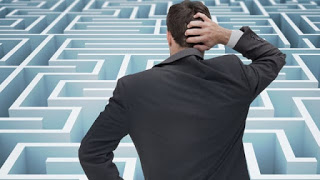Mastroianni, A.M., Gilbert, D.T.
Nature (2023).
Abstract
Anecdotal evidence indicates that people believe that morality is declining. In a series of studies using both archival and original data (n = 12,492,983), we show that people in at least 60 nations around the world believe that morality is declining, that they have believed this for at least 70 years and that they attribute this decline both to the decreasing morality of individuals as they age and to the decreasing morality of successive generations. Next, we show that people’s reports of the morality of their contemporaries have not declined over time, suggesting that the perception of moral decline is an illusion. Finally, we show how a simple mechanism based on two well-established psychological phenomena (biased exposure to information and biased memory for information) can produce an illusion of moral decline, and we report studies that confirm two of its predictions about the circumstances under which the perception of moral decline is attenuated, eliminated or reversed (that is, when respondents are asked about the morality of people they know well or people who lived before the respondent was born). Together, our studies show that the perception of moral decline is pervasive, perdurable, unfounded and easily produced. This illusion has implications for research on the misallocation of scarce resources, the underuse of social support and social influence.
Discussion
Participants in the foregoing studies believed that morality has declined, and they believed this in every decade and in every nation we studied. They believed the decline began somewhere around the time they were born, regardless of when that was, and they believed it continues to this day. They believed the decline was a result both of individuals becoming less moral as they move through time and of the replacement of more moral people by less moral people. And they believed that the people they personally know and the people who lived before they did are exceptions to this rule. About all these things, they were almost certainly mistaken. One reason they may have held these mistaken beliefs is that they may typically have encountered more negative than positive information about the morality of contemporaries whom they did not personally know, and the negative information may have faded more quickly from memory or lost its emotional impact more quickly than the positive information did, leading them to believe that people today are not as kind, nice, honest or good as once upon a time they were.
Here are some important points:
- There are a number of reasons why people might believe that morality is declining. One reason is that people tend to focus on negative news stories, which can give the impression that the world is a more dangerous and immoral place than it actually is. Another reason is that people tend to remember negative events more vividly than positive events, which can also lead to the impression that morality is declining.
- Despite the widespread belief in moral decline, there is no evidence to suggest that morality is actually getting worse. In fact, there is evidence to suggest that morality has been improving over time. For example, crime rates have been declining for decades, and people are more likely to volunteer and donate to charity than they were in the past.
- The illusion of moral decline can have a number of negative consequences. It can lead to cynicism, apathy, and a sense of hopelessness. It can also make it more difficult to solve social problems, because people may believe that the problem is too big or too complex to be solved.


